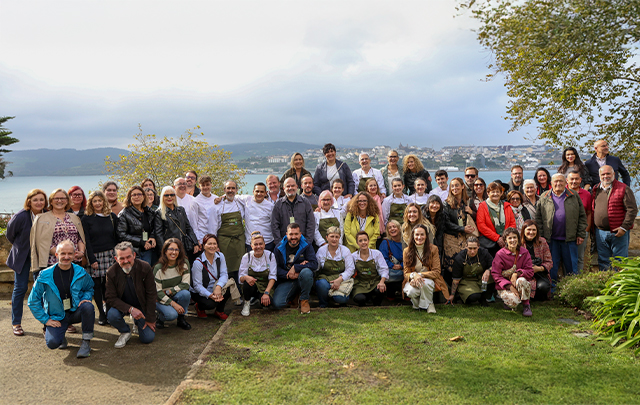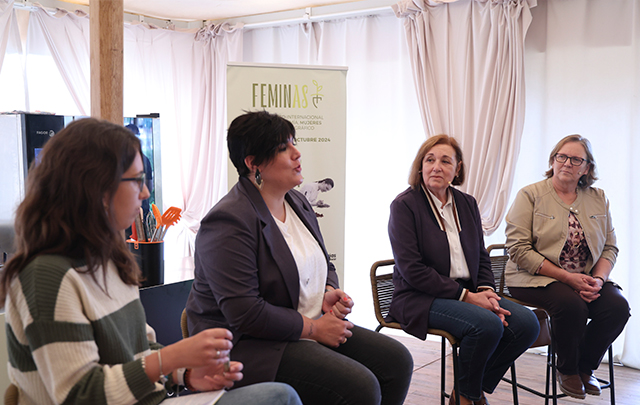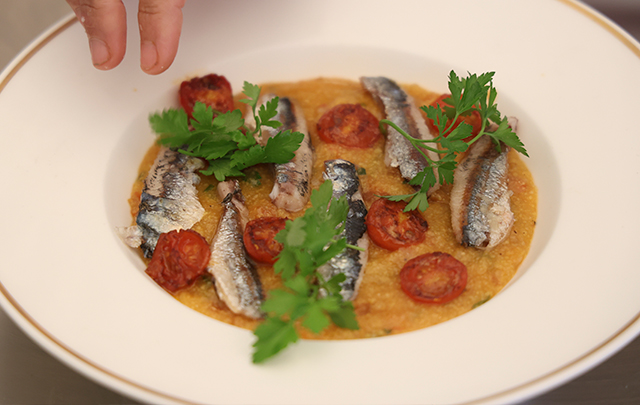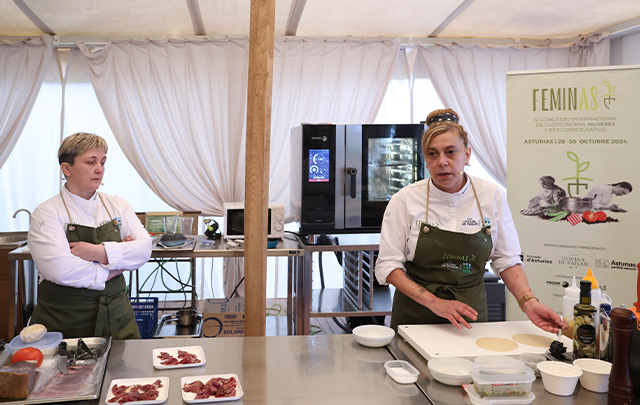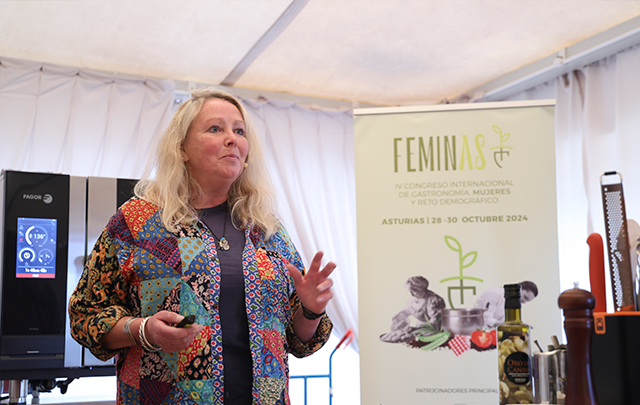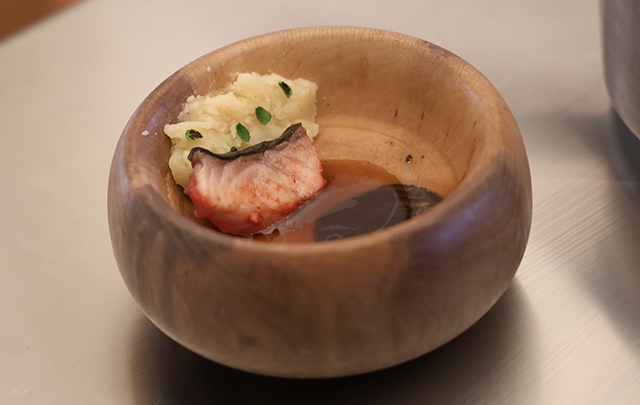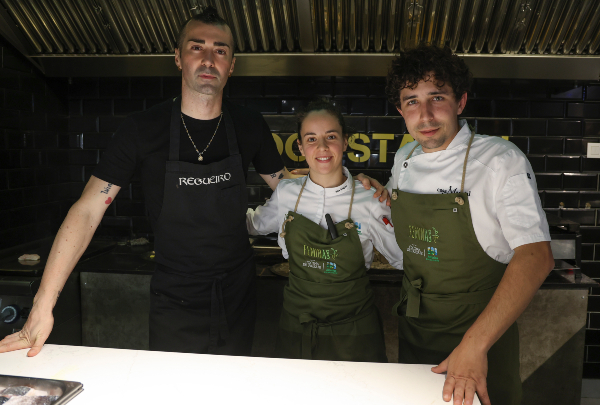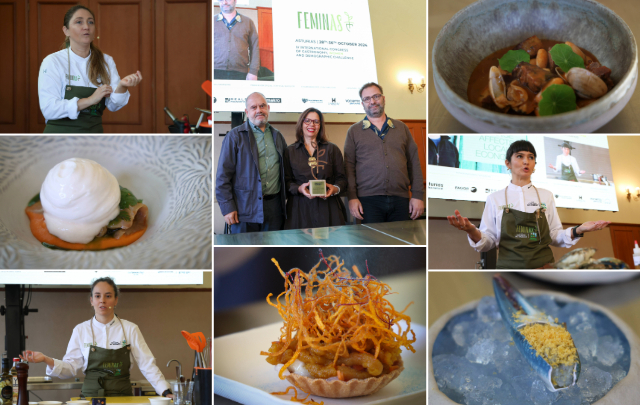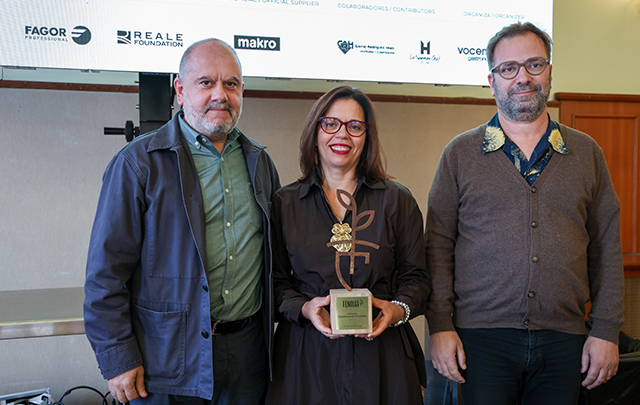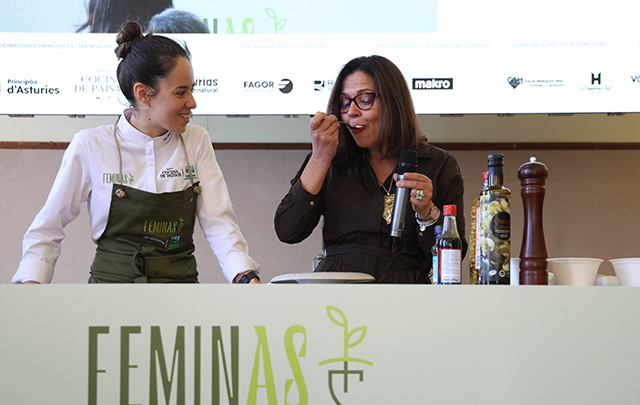News
Village life is the future,' says chef Elio Ferpel, who is presenting his project to document old recipes at FéminAs
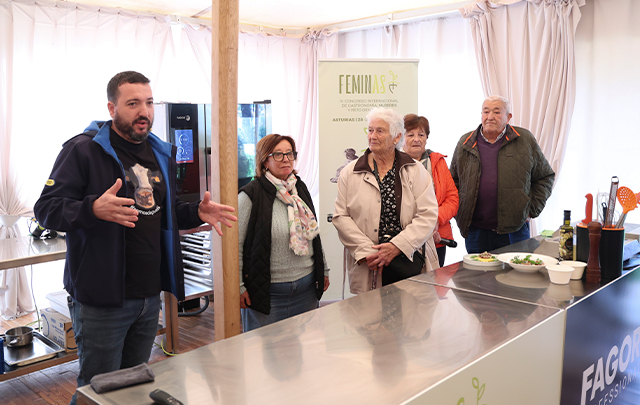
Without stew, there is no creativity, and stew is in danger, just like the markets. The chef dedicates his talk to defending the simple stews of his neighbours.
Elio Ferpel is one of the most successful chefs in western Asturias. The owner of a group of businesses that includes a Michelin-starred gastronomic restaurant (Ferpel Gastronómico, Ortiguera), a market tavern and a number of butter shops, he used his presentation at FeminAs, 'Heritage and Demography', to defend the legacy of his elders, not by cooking versions of their dishes, but by inviting those who have been his references to share the stage with him.
Ferpel is convinced that recovering recipes, disseminating them and inviting ordinary people to cook them is a strategy for revitalising communities. He started his recipe documentation project years ago. I don't make them myself, I ask people to make them in their own way, because everyone puts their soul into a dish and has a reason for doing things one way and not another,' he explains.
Ferpel's approach is as simple as it is effective: he records the preparation of a recipe, asks the people who cook it for their stories and shares them on social networks. Sometimes I have to trick them," he laughs. Deceived, Susa, Eusebio and Arito took to the stage. My compass in this project is memory,' says Ferpel. Susa and Eusebio had their house on the street between my school and my mother's restaurant, where I grew up, where I did my homework and where I served customers at the age of seven. When I passed by, there was always a quiet queue. I didn't understand why, but now I know it was the way to heal them. And we believe that healing is a modern technique,' he smiles.
Elio Ferpel is fighting to preserve the flavours of the past. Without stew there is no creativity, but stew is in danger, as are traditional crafts and food markets. Today, people don't go because they don't have the time, so I'm calling for memory and the rural world. Village life is the future," he says, and concludes by saying that he wants his cuisine to "take the people who try it back to their childhood. This is also the aim of my project.


